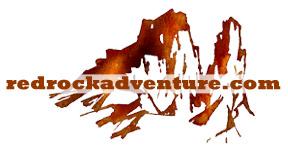The Writings of LaVarr B Webb
East Canyon as it was when I was a boy: an old, rutted dirt road that split off from the highway just below Parley's Canyon summit, humped its way up over the steep hill between the highway and the creek, and then angled down in a long glide through the sage brush and scrub oak. Grassy campgrounds and willows. A deep, slow moving creek, and a lot of scrappy, planted rainbow trout.
When I was eighteen, working, and could afford a pair of fishing boots, I and one of my fishing buddies, side by side, would wade down the stream, letting our lines float ahead of us, and we would contest with one another, wrapped in a real world of perfect contentment, to see who could reel in the largest and the most fish.
But, I remember an earlier trip to East Canyon that turned from a world of perfect contentment to a bitter fight for survival. I was about fourteen, and a Boy Scout patrol leader. I talked my scouts into a fishing trip to East Canyon, riding bikes, pulling homemade trailers.
It was difficult, during those depression years of the 30s, to acquire scouting equipment. We were a rag-tag patrol--no uniforms, not even a shirt, no money, but a great deal of enthusiasm and inventivness. We spent the last part of April and almost all of May, with the help of our mothers, making cotton filled sleeping bags, and two man muslin tents. We waterproofed the tents. I don't remember the waterproofing ingredients, except that they included paraffin, and they did not make the tents water proof.
We scrounged up wooden boxes, axles, and wagon wheels. We spent days trying to figure out how to fasten the axles to the thin bottoms of the boxes. The finished product was a two wheeled contraption that wobbled along behind the bike, rushing one direction, then another, like an unbalanced kite on the end of a string.
Early on the morning before fishing season opened, the scouts gathered at my place, their trailers loaded with all that they would need for an extended fishing trip. We waved goodbye to those mothers who had come to see us off, peddled down to 33rd South, and headed east, aiming for the mouth of Parley's Canyon.
The trailers darted back and forth behind the bikes. Wheels worked off their axles, and trailer beds, loaded with canned goods and camping gear, fell apart, but with hammer, nails, baling wire, and pliers, we made repairs.
Parley's Canyon was an ordeal. The road was steep and stretched out to infinity. We did not ride our bikes up that twisting mountain road. Leg muscles cramped, so we walked and pushed, and wondered if we would ever get to the top.
Going down the other side of the mountain was perilous. We had to brake the bikes, but there was no way we could brake the trailers. However, we finally arrived at the rutted dirt road that led to the canyon. Again, we pushed and pulled to the top of the hill. From there, we could see the creek, and the thoughts of all the fish that we would catch brought new energy and new strength to weary legs. We made camp just as the sun finished its journey across the blue, cloudless sky. After a hurried, cold meal, we crawled into those home made sleeping bags, snug in our home made tents, and went to sleep. The next morning we fished. We caught fish, and we ate fish.
That evening, three men joined us, and we sat on the bank of a huge hole, fishing as night enveloped us, talking and enjoying good company, and, once in a while, pulling in a fish.
That night, Saturday night, it began to rain. Water came through our water proof muslin tents, and puddle on the water proof floor. A little after midnight, the rain turned to snow; the tents sagged, then collapsed, and the wet sleeping bags, the wet tents, and the wet snow engulfed us.
I pulled myself out, built a fire, and we huddled around it till morning. There was snow all around us, and underneath the snow was mud, and heavy clouds, leaking huge flakes, were parked above us. We decided to cut our fishing trip short and go home.
Other fishermen were trying to drive trucks and cars through the gumbo mud and the wet snow. Wheels slipped, tires whined as men pushed and cussed while women tried to drive, fighting to force their vehicles up the steep, boggy incline.
And we tried to drag our bikes and trailers through the knee deep slush and mud. We finally abandoned our trailers, and then some of the scouts left their bikes and begged rides from the drivers of the cars and trucks. But Jake, my best friend and fishing buddy, and I refused to leave our bikes. We pushed them to the highway, ground our way up to Parley's summit, and then coasted almost all of the way home. We made one stop. There was a cafe about half way down Parley's Canyon that was open. We were wet, and we were cold, and we asked the manager if we could set by her stove for a while and thaw out. She graciously consented.
When I stomped onto the back porch of our home in Salt Lake an hour or so later, my mother met me with dry clothes and hot milk toast, laced with butter, salt and pepper. All of the fish in the world could not have made me get back into that soggy sleeping bag on the banks of the East Canyon creek.
